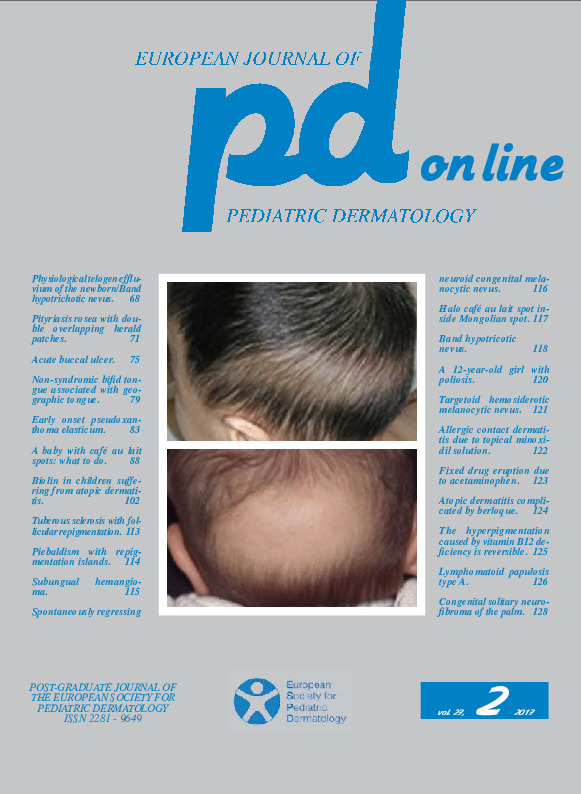Spontaneously regressing neuroid congenital melanocytic nevus.
Downloads
DOI:
https://doi.org/10.26326/2281-9649.27.2.1349How to Cite
Garofalo L., Milano A. 2017. Spontaneously regressing neuroid congenital melanocytic nevus. Eur. J. Pediat. Dermatol. 27 (2): 116. 10.26326/2281-9649.27.2.1349.
pp. 116
Abstract
Congenital melanocytic nevus accounts in Bari for 1,4% of infants (1). Unlike congenital melanocytic nevus of the glabrous skin where terminal hairs usually appear from the third year of life, congenital melanocytic nevus of the scalp may appear at birth only with an area of thicker hairs, that hides the underlying hyperpigmented skin. By the time congenital melanocytic nevus often becomes invisible with disappearance of the cosmetic defect, but creating more difficulties for its clinical monitoring. In about 7% of the cases, congenital melanocytic nevus may regress from a clinical point of view (2). These events must be taken into account in choosing between clinical monitoring and surgical removal. The here reported neuroid congenital melanocytic nevus is characterized by the dotted bluish pigmentation, messy angiogenesis, which has probably favored the formation of the hematoma, and spontaneous regression.Keywords
Congenital melanocytic nevus, Neuroid, Regression

